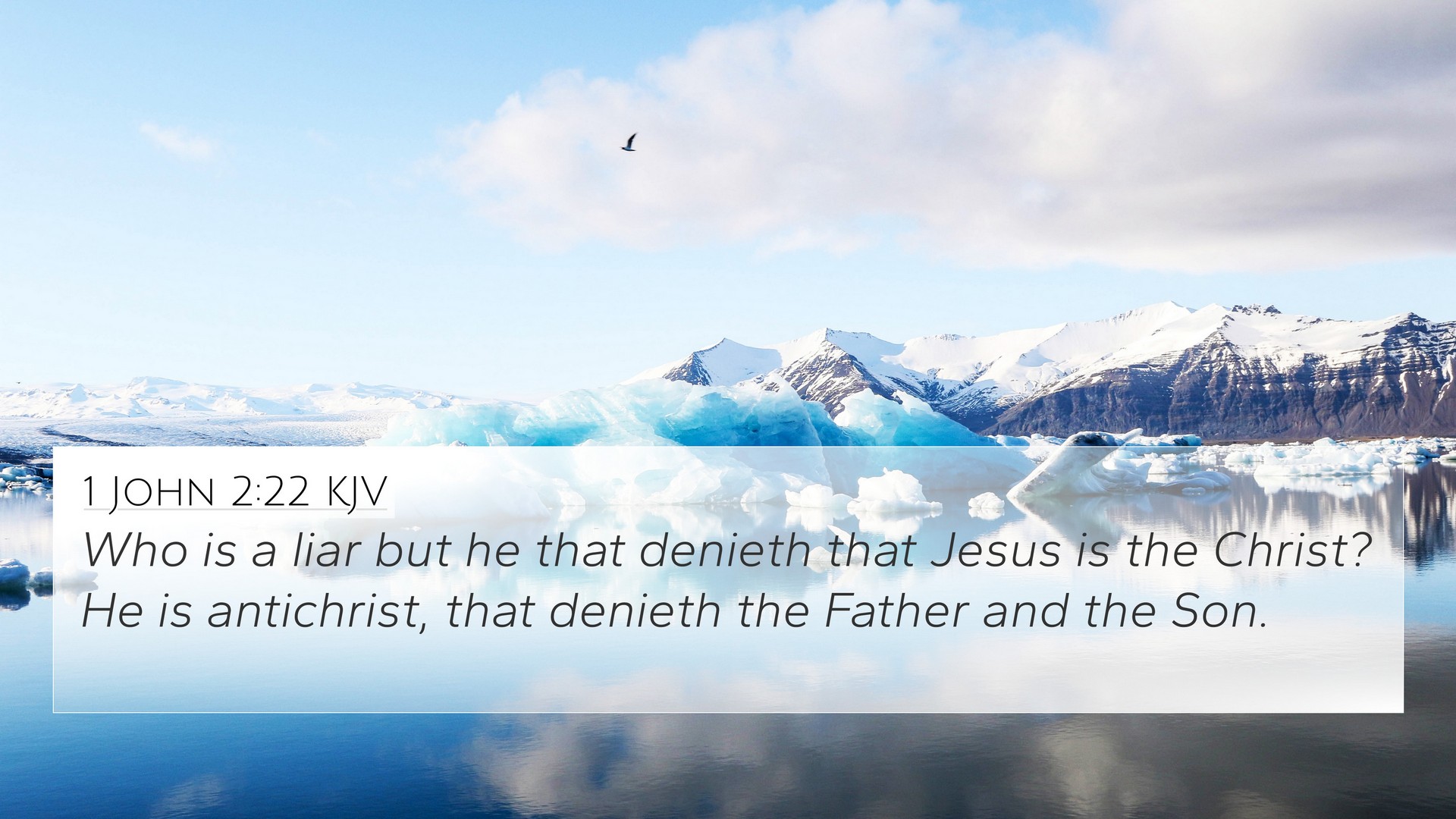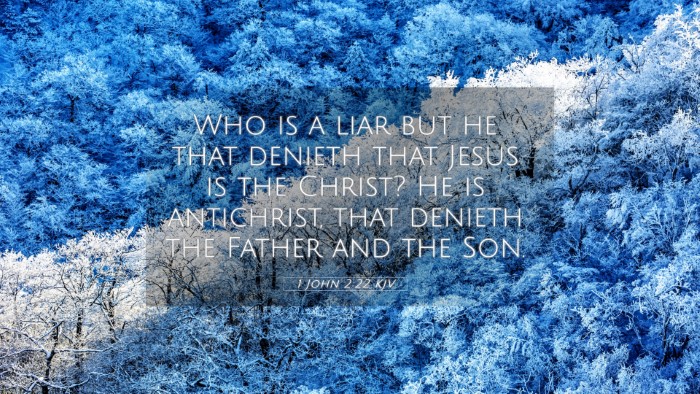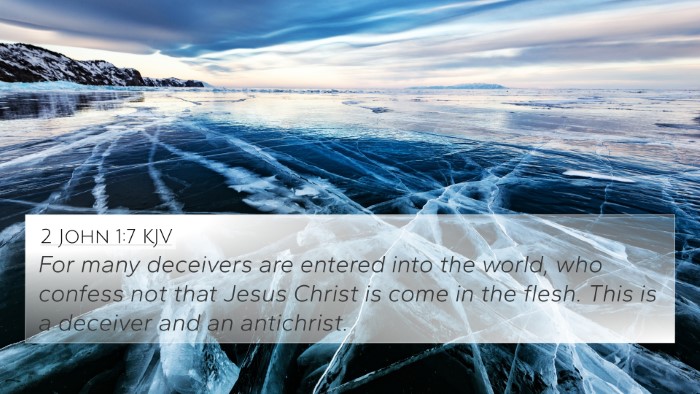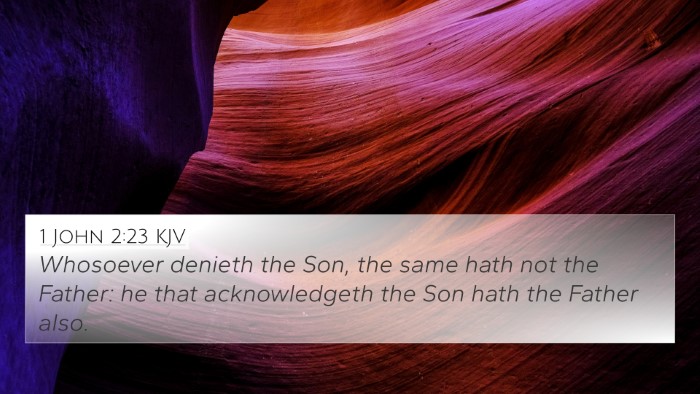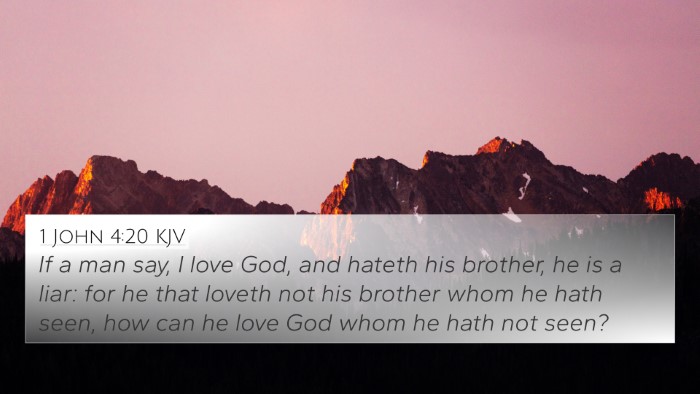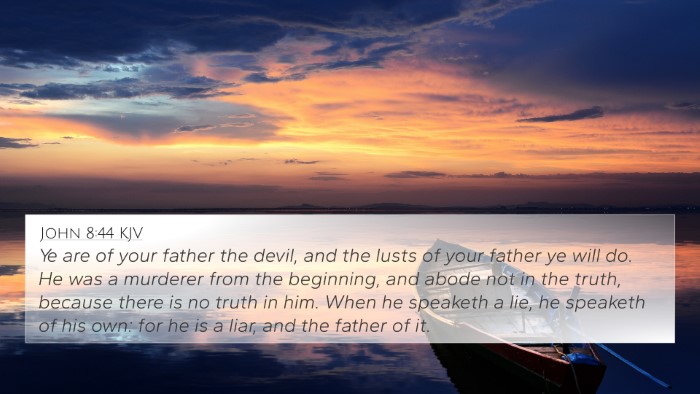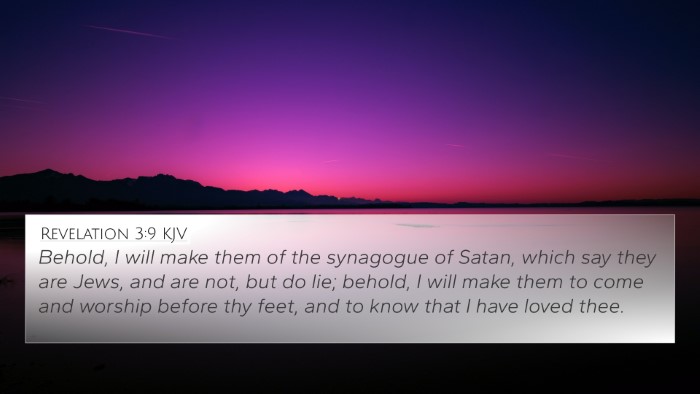Understanding 1 John 2:22
Bible Verse: "Who is a liar but he that denieth that Jesus is the Christ? He is antichrist, that denieth the Father and the Son." - 1 John 2:22
This verse categorizes anyone who denies Jesus as the Messiah as a liar and an opponent of Christ, emphasizing the seriousness of rejecting Christ's identity.
Summary of Key Themes
- Denial of Christ: The verse identifies denial of Jesus as the Christ as central to being an antichrist.
- Father-Son Relationship: It highlights the relationship between the Father and the Son, asserting that to deny one implies a denial of the other.
- Truth vs. Lies: The text contrasts truth, which is affirmed in the recognition of Christ, with the lies propagated by deniers.
Commentary Insights
Matthew Henry's Commentary: Henry emphasizes that the denial of Jesus as the Christ is not just a theological error but a moral failing, positioning deniers as actively opposing divine truth. He articulates that such individuals are not simply mistaken but lie against the very essence of Christian faith.
Albert Barnes' Notes: Barnes expands on the implication of being called an "antichrist," signifying adversaries of Christ who perpetuate falsehoods about Him. He points out that the denial discussed is not merely passive but a deliberate choice to spread falsehoods about Jesus' divine nature.
Adam Clarke's Commentary: Clarke notes the clear delineation in the text concerning the nature of deception, indicating that to deny either Jesus or His divine relationship with the Father leads to the manifestation of being an antichrist. He further connects the implications of this denial to the broader apostolic teachings and warnings about false prophets.
Bible Cross-References
1 John 2:22 offers connections to several other Bible verses that reinforce its messages. Here are 10 key cross-references:
- John 1:1: "In the beginning was the Word, and the Word was with God, and the Word was God."
- 1 John 4:3: "Every spirit that does not confess that Jesus has come in the flesh is not of God."
- Matthew 12:30: "He who is not with Me is against Me, and he who does not gather with Me scatters."
- 2 John 1:7: "For many deceivers have gone out into the world, who do not confess Jesus Christ as coming in the flesh."
- Galatians 1:7: "There are some who trouble you and want to pervert the gospel of Christ."
- Matthew 16:16: "Simon Peter replied, 'You are the Messiah, the Son of the living God.'"
- Hebrews 1:5: "For to which of the angels did He ever say, 'You are My Son, Today I have begotten You?'
- Acts 4:12: "Nor is there salvation in any other, for there is no other name under heaven given among men by which we must be saved."
- Revelation 2:2: "I know your works, your labor, your patience, and that you cannot bear those who are evil."
- John 10:30: "I and My Father are one."
Exploring the Thematic Connections
This verse not only stands alone but also resonates with several themes throughout Scripture, manifesting aspects of truth, revelation, and divine relationship. In doing so, it encourages study into connections between Bible verses that explore:
- Truthfulness in faith and teaching.
- The identity of Jesus Christ as central to Christian doctrine.
- The denouncement of false teachings throughout the New Testament.
Tools for Bible Cross-Referencing
For further study, there are various tools available for engaging in Bible cross-referencing.
- Utilizing a Bible concordance to find themes and connections.
- Referencing a Bible cross-reference guide during personal study.
- Exploring cross-reference systems available in digital formats or printed Bibles.
How to Effectively Use Cross-References
Understanding how to use Bible cross-references can enhance your study and understanding:
- Identify themes: Select a theme or doctrine present in the verse.
- Search for related verses: Use a concordance or Bible software to find related scriptures.
- Compare context: Study the context of both the original verse and the connected scripture.
- Document insights: Keep notes on how verses interact and reinforce each other.
Conclusion
In studying 1 John 2:22, believers are reminded of the power of truth and the significance of acknowledging Jesus as the Christ. The cross-references enrich our understanding and highlight the interconnectedness of Scripture, enhancing our faith and guiding our journey in discovering God’s revelation through His Word.
